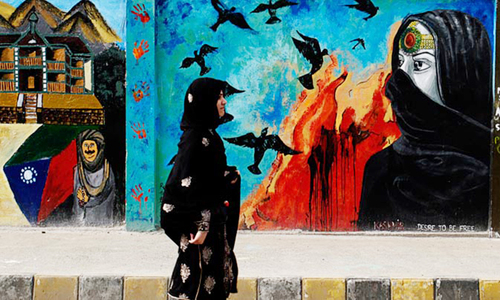With all the issues and problems that Pakistan confronts socially, economically and politically, people with international exposure would vouch that the country feels and appears better than its global perception and rankings.
Irrespective of the government in power, over its short history, Pakistan has shown resilience in difficult times. Be it terrorism, earthquake, floods, global financial crisis of 2008 or the challenges posed to life and livelihood in the current pandemic, Pakistan has surprised others and itself by her performance. History has been volatile and trends erratic. It was labelled a failed state at one point and a few years later assessed among the most promising developing nations. Pakistanis braved multiple crises and toppled governments but the country did somehow dodge the worst and the economy never tanked completely.
Even the most ardent critics of government policies and the flawed economic framework are puzzled when Pakistan is placed at the bottom of global indexes bracketed with Iraq, Yemen and Afghanistan. Last week, Pakistan was ranked 174th in 180 nations on the Global Sustainable Competitiveness Index, trailing all neighbours and equals but Afghanistan. India is placed at 127, China 39, Bangladesh 115, Sri Lanka 86, Nepal 53, Bhutan 55, Iran 93, Turkey 84, Vietnam 91, Indonesia 68, Brazil 54 and Malaysia 73 on the said scale.
Even the most ardent critics of government policies are puzzled when Pakistan is placed at the bottom of global indexes
The index was launched by a 15-year-old Swiss-Korean joint venture — a management consulting company called SolAbility. It claims to calculate competitiveness based on 116 measurable, quantitative indicators derived from the data pool of the World Bank, International Monetary Fund (IMF) and UN agencies. All indicators are grouped into five sub-indexes: natural capital, resource efficiency and intensity, intellectual capital, governance efficiency and social cohesion.
The consulting think tank describes sustainable competitiveness as ability to not just compete and succeed in a congested environment currently but also in the long run. They explained the concept thus: “Sustainable competitiveness is the ability to build a framework (policies, regulations, management tools, and visions) that allows a firm, a sector, an individual or a country to sustain or increase the ability to generate and sustain inclusive wealth without diminishing the future capability of increasing it.”
SolAbility treats progress in 12 areas — a global climate tax, more democracy, better governance, real market economy, good education, sound financial market, health and social security, accessible efficient judicial system, unitary tax structure, access to fact-based impartial information, religious freedom, and equality — as key drivers for sustainable competitiveness.
Reached over the phone for comments on the low ranking of Pakistan, the government hierarchy was vague, businessmen dramatic and experts confused.
Dismissing the outcomes of multiple indexes as indicative at best, he thought a mechanical measurement of something as complex as society and economy can be misleading
Minister for Industries Hammad Azhar and federal secretary Lateef Afzal were approached, but both gentlemen were too busy to make time for sharing their view on the subject. A senior officer of the ministry, Saeed Nawaz, partially blamed the adverse assessment of the country on the anti-Pakistan bias. He did admit to low productivity/competitiveness rates in industry that, he said, were rooted in low literacy and the absence of the mainstreaming of skill development with the country’s education system. He found fault primarily in society, not policies. “Pakistan bashing is fashionable both locally and globally. Our labour force is too demanding and lacks skill and discipline.”
An eminent economist privately shared his views. Critical of the pampering of business by the government, he thought the practice has blunted Pakistan’s private sector’s drive to stay ahead of the competition on the strength of innovation and productivity gains. “I challenge the current class of Pakistani tycoons to move out of their comfort zone in the country, set up businesses in other countries of their choice in the East or West and succeed. Without patronage, I believe, they stand no chance in the global marketplace.
“Where else can you find top businessmen playing golf in the middle of the day?” he asked, implying that the framework allows them to multiply their wealth without much effort.
Dismissing the outcomes of multiple indexes as indicative at best, he thought a mechanical measurement of something as complex as society and economy can be misleading. “Beyond numbers, there are critical nuances in any society that are hard to capture in tick-box models.”
Mian Anjum Nisar, president of the Federation of Pakistan Chambers of Commerce and Industry, again made the case for a greater emphasis on industrial promotion in public policy to empower businesses to shine in the global competition and make Pakistan fare better in global rankings.
Published in Dawn, The Business and Finance Weekly, December 21st, 2020















































